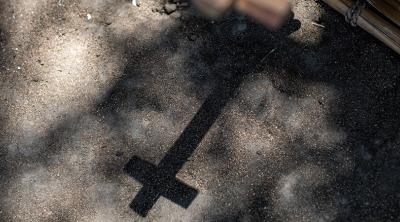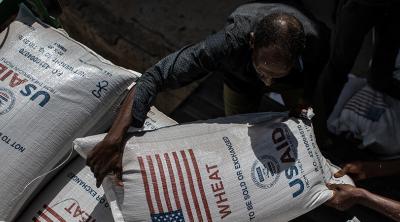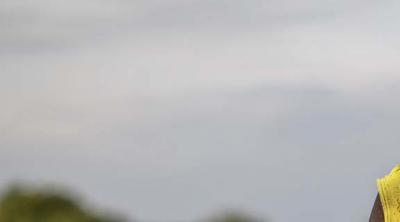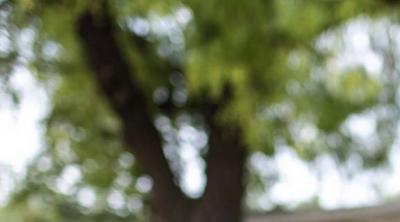CRS in South Sudan
A drought in Eastern Africa has left millions in South Sudan, Kenya, and Somalia facing chronic hunger. Hundreds of thousands of children are acutely malnourished and need urgent nutritional support.
Catholic Relief Services is responding with emergency food aid, water and vocational training for the most vulnerable people, including those who have been displaced from their homes.
South Sudan is the world’s newest nation. Following several decades of civil war with Sudan, industry and infrastructure in landlocked South Sudan are severely underdeveloped and poverty is widespread.
Despite very trying circumstances, Catholic Relief Services’ reach is widespread. CRS helps feed hungry people affected by poor rains and ongoing conflict. The organization works with community members to improve water and hygiene systems. CRS collaborates with the Catholic Church and other organizations to support peacebuilding and reconciliation in this fractured nation. But this work cannot be done without you.
When you donate to CRS, you do it all. You help families eat during war and drought. You teach life-changing hygiene habits. You work to heal communities seemingly broken by violence and tension.
In South Sudan, CRS’ work focuses on several areas, including disaster response, agriculture, water and sanitation, and peacebuilding.
POLICY POSITION
See the CRS policy position for South Sudan here.
Right now, a record 5.8 million people in South Sudan are facing a severe hunger crisis. Some areas are dealing with fighting. Others struggle with the influx of 1.6 million displaced people. In addition, a persistent El Nino-driven climate pattern has caused drought so severe, nearly half of the country’s population are unsure where their next meal will come from. CRS currently implements emergency relief and long-term development programs, which are key to ensuring the country gets back on track as soon as peace returns. Since January 2015, CRS and Caritas teams have distributed food and nutritional supplements to 506,321 people. About 4,000 farmers have been provided bags of grain and training on post-harvest storage.
CRS also works in South Sudan to provide water and sanitation improvements. Since January 2015, CRS has repaired 80 water sources and trained committees to keep their water supply safe and flowing. Almost 200 community hygiene promoters have passed on hygiene messages to close to 150,000 people.
Finally, CRS is providing comprehensive support to vulnerable families, especially those affected by fighting in the states of Lakes and Jonglei. The Church is one of the few institutions in South Sudan that has the credibility, capacity, and presence to effectively address concerns affecting society at large. It continues to act as a bridge to support peacebuilding and reconciliation activities. CRS and its local partners are working to strengthen relationships and promote healing, while continuing to deliver lifesaving emergency and development assistance.
Resilience. Impact. Dedication. You. CRS’ work in South Sudan is just one example where your presence makes a world of difference.
Thank you!
FIND OUT MORE ABOUT THE 100+ OTHER PLACES WHERE YOU ARE
Stats
People Served: 1,384,839
Population: 13,026,129
Size: 248,777 sq. mi.; slightly smaller than Texas
Our Partners
Become a Partner ›CRS' History in South Sudan
Catholic Relief Services has operated in South Sudan since 1983. For nearly 25 years, CRS supported the people of South Sudan with emergency assistance and conflict mitigation amidst a period of prolonged civil war. In advance of the country's independence in July 2011, CRS increased assistance to basic service delivery while scaling up its efforts to strengthen civil society and reduce the potential of conflict around the 2011 referendum. Following independence, CRS labored to deliver broad-scale recovery and development in areas devoid of basic services for more than 50 years. We have advocated for effective, responsive and equitable governance.
CRS’ agriculture work in South Sudan engages vulnerable communities to meet their long-term food and livelihood needs. CRS has distributed seeds and tools to thousands of farmers, which helped create markets for farmers with surpluses to sell to those in need.
We empower local communities to care for their water supply and sanitation systems, as well as improve their hygiene behaviors. We have built thousands of latrines and rehabbed hundreds of wells, while training locals to promote appropriate hygiene practices.
We use Savings and Internal Lending Communities (SILC) to mobilize members to save, build solidarity and empower vulnerable groups to mobilize their own resources to access credit.
The goal of CRS South Sudan’s peacebuilding program is to support South Sudanese institutions to actively prepare for, prevent and respond to violent conflicts while engaging in healing and reconciliation work. Given the emergencies and hazards in South Sudan, particularly following the political and ethnic crisis that emerged in December 2013, emergency response and peacebuilding remain critical sectors.






